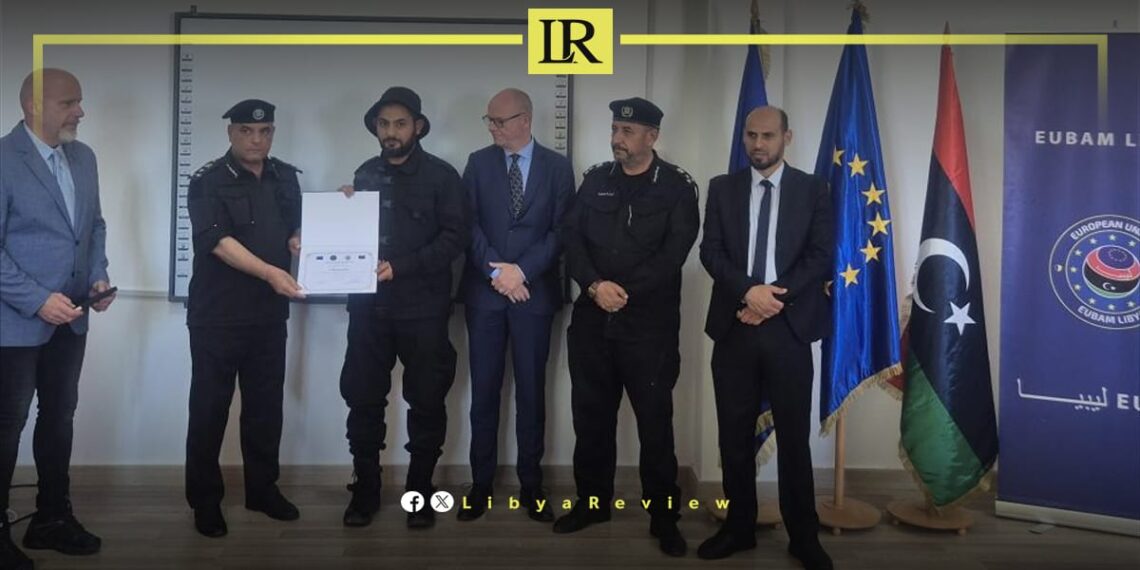The European Union Border Assistance Mission in Libya (EUBAM) has concluded a comprehensive training programme aimed at enhancing forensic investigation skills and improving tools used in anti-trafficking operations.
Held at the General Directorate for Drug Control’s Training Centre from 13–17 April, the programme involved 21 officers from Libya’s anti-narcotics authority. According to EUBAM’s website, the training focused on key aspects of investigative work, including information processing, identifying crucial data sources, and building robust criminal cases.
A major component of the course was strategic investigation planning. Participants were taught to apply various templates, formats, and methodologies to improve case management and problem-solving in complex investigations. The sessions also included guidance on the use of analytical software and database systems relevant to forensic work.
EUBAM highlighted that the sessions were interactive, featuring open discussions and hands-on exercises. This approach aimed to foster critical thinking and practical application of knowledge gained during the training.
Delivered by EUBAM trainers, the course reflects the ongoing partnership between the EU and Libyan law enforcement agencies to strengthen institutional capacity and support long-term security sector reform. The programme concluded with a graduation ceremony where participants were awarded certificates of completion.
The training comes amid rising concerns about drug trafficking and organised crime in Libya, which remains a transit point for smuggling networks operating across North Africa and into Europe. EU officials have previously stressed the importance of investing in law enforcement training to combat cross-border crime and improve regional stability.
EUBAM reiterated its commitment to supporting Libyan authorities with technical expertise, resources, and capacity-building initiatives tailored to meet evolving challenges in criminal investigation and border management.


